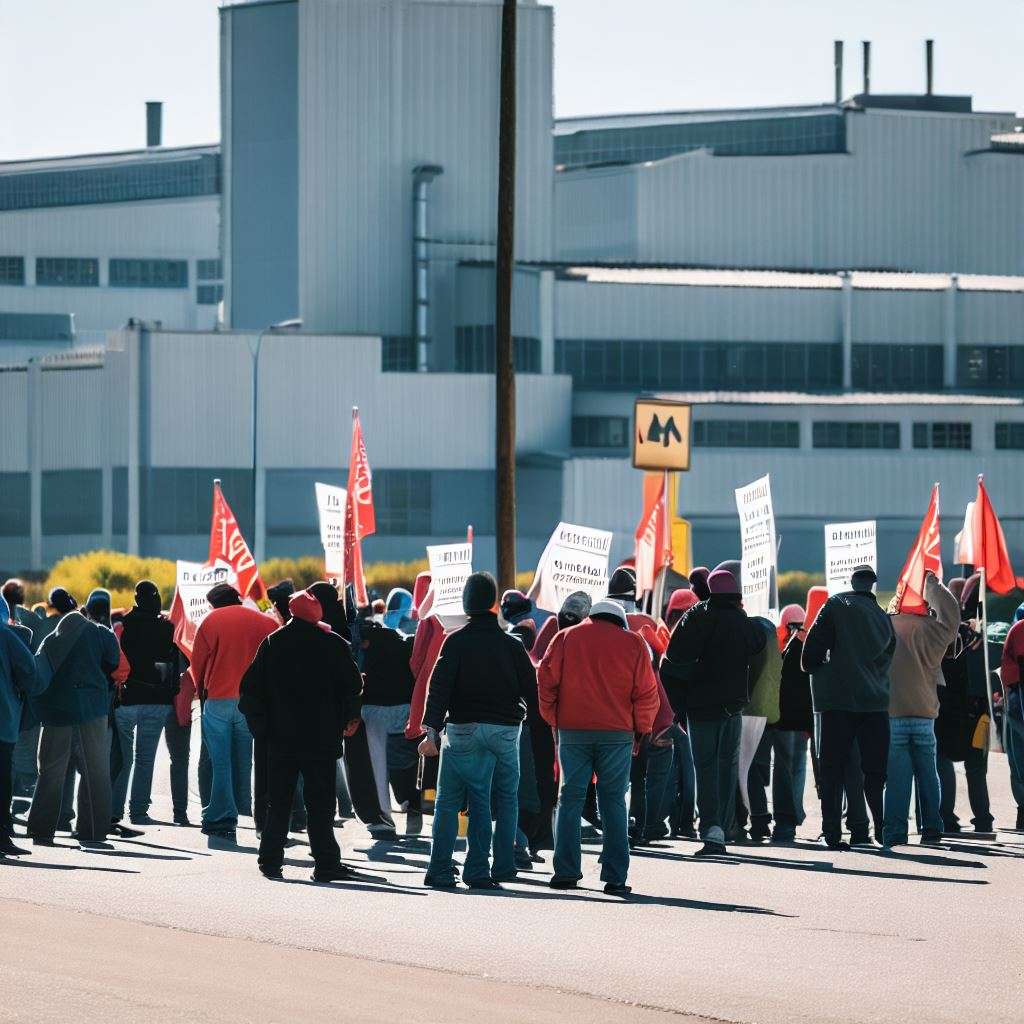
In a dynamic turn of events, the stock market witnessed a mixed bag of performances among major automotive giants. While Ford and General Motors experienced a modest uptick in their stock values, Stellantis (NYSE: STLA) faced a dip of 0.8% just before Monday’s opening bell. The cause behind this unexpected stumble? Labor strikes that erupted at crucial production facilities of these automotive powerhouses.
It was a stormy start to the week for Stellantis as its shares took an early hit. This setback, however, was not isolated but instead intertwined with labor disputes that rattled the foundations of the auto industry. The strikes that sent ripples across the sector were initiated at General Motors’ Wentzville Assembly plant in Missouri, Stellantis’ Jeep assembly complex in Toledo, Ohio, and specific departments within Ford’s assembly plant situated near Detroit.
Labor Unrest Strikes Three Auto Giants
Labor strikes are not uncommon in industries with heavy union representation, such as the automotive sector. What distinguishes this episode is the simultaneous occurrence at three major players in the field. Let’s delve into the details of the disputes that triggered this disruption.
1. General Motors – Wentzville Assembly, Missouri
General Motors, a stalwart in the automobile world, found itself at the epicenter of the labor unrest. Employees at the Wentzville Assembly plant in Missouri downed their tools and took to the picket lines. The crux of their demands revolved around better wages, improved working conditions, and job security.
2. Stellantis – Jeep Assembly Complex, Toledo, Ohio
Stellantis, the parent company of Jeep, faced its own set of challenges as workers at the Jeep assembly complex in Toledo, Ohio, joined the chorus of discontent. The workforce’s grievances included concerns about benefits and the allocation of resources within the company.
3. Ford – Assembly Plant near Detroit
The labor strife wasn’t confined to General Motors and Stellantis; Ford, too, felt its reverberations. A section of workers at Ford’s assembly plant near Detroit participated in the strikes, raising issues related to compensation and job stability.
Stock Market Reaction
As news of these labor disputes spread like wildfire, the stock market responded with a mixed bag of reactions. While Ford and General Motors experienced marginal gains in their stock values, Stellantis saw its shares dip by 0.8% just before Monday’s opening.
Investors, always on the lookout for signs of stability and growth, appeared to react cautiously to the uncertainty created by the strikes. This sentiment was particularly evident in the case of Stellantis, where the stock dipped, reflecting concerns about the potential impact of the labor unrest on the company’s operations and profitability.
Industry-Wide Impact
The automotive industry is a complex ecosystem where even a minor disruption can have far-reaching consequences. Labor strikes at these major facilities can lead to production delays, affecting not only the automakers themselves but also their suppliers and the broader economy.
The strikes also shed light on the broader issues faced by workers in the auto industry. While the sector has seen a resurgence in recent years, with robust demand for vehicles, workers are increasingly advocating for a fair share of the pie. The challenges they face include job security in an era of automation, competitive wages, and improved working conditions.
Looking Ahead
The path forward for all three automakers and their workforce remains uncertain. Negotiations between labor unions and management will play a pivotal role in resolving the disputes and getting production back on track.
In the bigger picture, these events underscore the delicate balance between labor and management in the modern automotive industry. As the sector continues to evolve, adapting to new technologies and market demands, it will be crucial for all stakeholders to find common ground and ensure the industry’s continued growth and prosperity.



Get the latest Crypto & Blockchain News in your inbox.